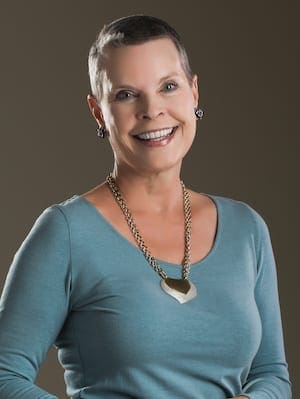Forgive, but please don’t forget.
Forgive and forget are not synonymous, although my background would suggest they are.
All my life it was “forgive and forget,” which, when you think about it, makes perfect sense – if you’re my parents. Forgetting was the same as pretending it, whatever “it” was, never happened in my family.
Michelle had my dad’s baby? Erase her off the whiteboard of our life. No pictures, no reference allowed, no contact.
She, the victim, was shunned. Sent away and forgotten. Except, of course, she wasn’t. She was a terrible wound that festered just beneath the surface of our lives, all our lives.
By the way, the Bible does not equate forgetting with forgiving, but that nuance was expertly woven into the tapestry of my religious upbringing.
So, the underlying message, if you’re me, is this: If you haven’t forgotten, you haven’t forgiven.
A defined shortcoming of character, if not belief. It’s dangerous at best, that old adage, for it tripped me up on my journey to emotional health.
Forgiveness, for me, is setting aside the angst. Isn’t “angst” a perfect word? It wraps itself around anger, dread, fear, disquiet, hostility and others you might name.
A perfect package to set aside or put down. Divest yourself of a bit of weight. It’s difficult to face forward with anticipation, energy or joy when you’re lugging a crate-load of hurt.
Laying down the angst is easier said than done – when that yummy piece of justifiable resentment crawls up my leg and leaps on my back wriggling in anticipation of its piggyback ride – I must untangle the octopus legs, lift the sorry mess up over my head and dump it back on the ground with a “Take that!”
I’m told it’s easier when an abuser acknowledges their role and asks for forgiveness. I wouldn’t know.
I suspect there are a lot of us out there whose abuser has never owned up to the abuse.
What I do know is that not forgiving is like “drinking poison hoping the other person will die.” It doesn’t serve me well.
So, I do and will continue to do the mind/heart labor of relinquishing my justifiable resentments bit by bit, piece by piece, day by day.
Forgiveness is about personal power, about attaining peace, about looking forward with hope. Some helpful exercises in the process of letting go:
- Make a decision to let your anger and resentment go.
Forgiveness is a choice. It is a mental exercise you’ll need to employ every time the wounds to your heart assert themselves.
- Remember the offense in order to fully let it go.
Sometimes, it helps to write it out. I remember writing to both my mother and father – what they had done to hurt me, how I felt about their actions, and what I was now doing about it.
I took it to the highest point above the sea near where I lived, tore my writings into tiny pieces and scattered them in the wind, like one might do ashes.
- Say out loud, “I forgive you.” Or, as was easier for me, “I lay down my hurt (or anger or downright hostility) and choose to go on.”
- Forgive yourself along with them.
I carried the weight of not being able to protect my siblings, of having made a poor choice in marriage, of unwittingly putting my children at risk. I had to lay those things down.
- Live a victorious life.
Finding peace in letting go will set you free. You’ll have more energy and a desire to face forward with anticipation.
I, however, will not forget.
I will give our family’s experience voice because we are worth it. I’ll give voice to abuse hoping others will be emboldened to step away from victim and reach for victory.
I’ll give voice to those who are the loving arms enfolding a wounded child for hope.
I’ll give voice in quiet prayer that someone whose path is darkened by trauma now will see light at the end of the tunnel.
Remembering, clarified by forgiveness, forges all that you encountered into the unique being that is you. Remembering gives you courage, voice.
Remembering bequeaths compassion, empathy and the will to see to it that others don’t suffer as you did.
Forgive. But please don’t forget.
Editor’s note: This article is part of a weekly series by Laura Landgraf on sexual abuse. The previous articles are:
Preventing Child Sexual Abuse: Do’s and Don’ts for Busy Parents
Your Child’s Behavior Changes May Signal Sexual Abuse
How to Listen and Respond if Your Child Discloses Molestation
After Bomb of Abuse Detonates, Your Self-Care Helps Your Child
Laura Landgraf, author of “The Fifth Sister,” is a social activist, retreat leader and motivational speaker. Her TEDx Talk is “Razed by Lions: A New Way to Think about Healing after Trauma.”


